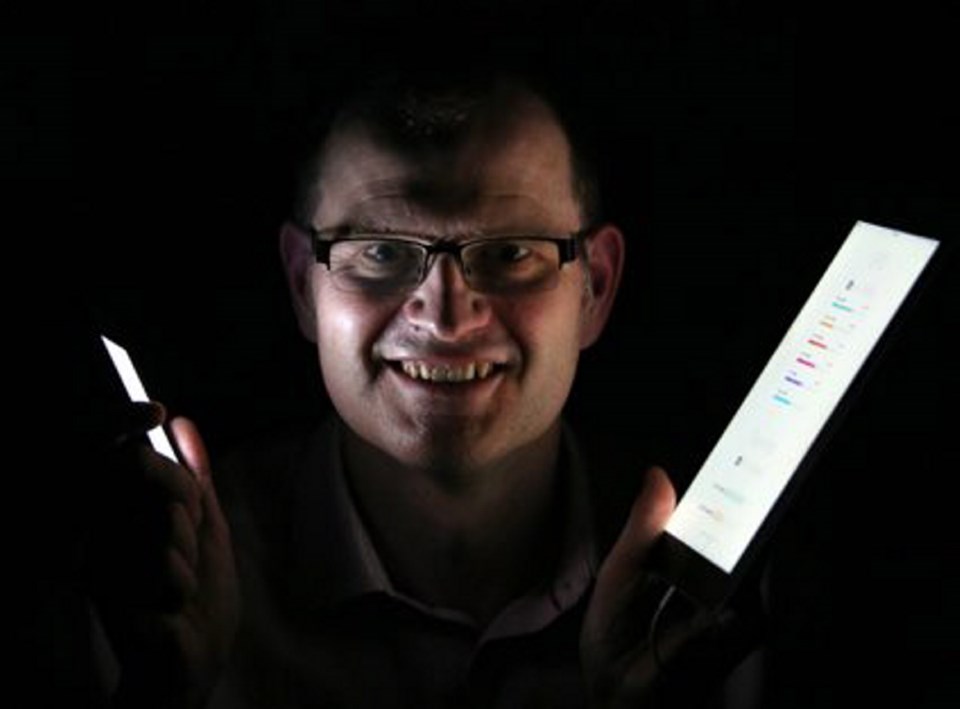With sa���ʴ�ý already past its target for accepting 25,000 refugees from Syria, university academics are exploring whether video games can help.
In an Ideafest session titled Games w/o Frontiers: The Social Power of Video (& Other) Games, participants will be asked to consider, even create, a game to help resettle refugees or shift Canadian attitudes about the refugee experience.
“It’s all about asking: ‘Can we take this idea of a basic experience and turn it into game play?’” said David Leach, director of the inter-disciplinary department of technology and society.
“It might educate or replicate the challenges that refugees are facing coming to sa���ʴ�ý, or within sa���ʴ�ý.”
He said games, whether they are board games or video games, and other kinds of play are becoming recognized as powerful ways to experience and learn. They can be fun, competitive, beautiful, even distressing.
Leach cited one video game called “Papers Please” in which players are underpaid border guards in some grim, Soviet-style country, and must navigate situations and dilemmas.
Another game recreates a family’s loss through childhood cancer. It was so powerful, Leach said he had to quit after 15 minutes.
Yet another, called Journey, was nominated for a Grammy for its music. It’s not even a competitive game experience. Instead, it’s an immersion into stunning landscapes overlaid with lovely music.
In Ideafest, the refugee experience will become the focus of a “game jam.”
It’s a session where participants brainstorm ideas. Then, with the assistance of two mentors, both experienced game designers, they can come up with ideas for plotting the refugee experience in a game format. It might be a board game, like Monopoly, or a card game or a video game.
But the idea will be to imagine or reconstruct an experience, in this case a refugee experience, to foster positive social change. It might help teach genuine refugees to navigate the Canadian experience. It might sensitize Canadians to what refugees need and would appreciate.
Meanwhile, other sessions in the Ideafest event will include discussions and exploration of issues such as games in education, virtual reality, games for health and games as art.
Leach said the world of games, particularly video games, is undergoing a generational adjustment. What the younger set now accept as obvious, the older generation hasn’t even considered.
For example, he said, he has given talks on the subject “Can video games be art?”
“If I give this talk to my colleagues, 45 years and up, they give me these weird looks. ‘What are you talking about? Video games as art?’” said Leach.
“And when I give the same talk to first-year students, I get the same fuzzy look,” said Leach. “But the first-years are saying: ‘Of course they are art and why do you even bother to ask?’”
Game w/o Frontiers is on March 12, noon to 4:30 p.m. in the MacLaurin Building.
Other exhibits include:
• From Papyrus to Pixels: The (Ongoing) History of the Book — The history of the book has something for everyone, with a range of activities for people of all ages. 10:30 a.m. - 3 p.m. Saturday, McPherson Library (LIB)A003 – Special Collections.
• Algorithms and Doilies: Not just another pretty lace — The most sophisticated textiles are sitting on your grandmother’s coffee table. Learn how lace is being used to drive design innovation, take in a display of fascinating samples and participate in making a large-scale, original art piece. 1 p.m. - 2:30 p.m. Friday, Engineering/Computer Science (ECS)660.



